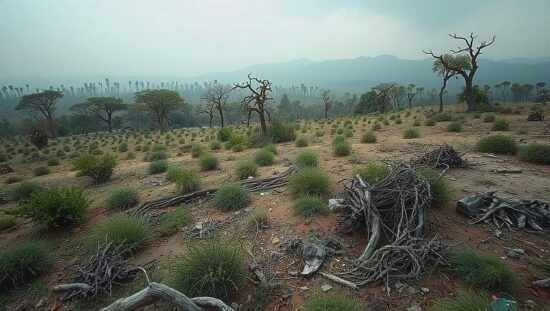The latest report from the United Nations Environment Programme (UNEP) paints a stark picture, revealing that the world remains on track for a catastrophic 2.8 degrees Celsius of global warming. This trajectory, significantly higher than the 1.5-degree Celsius target enshrined in the Paris Agreement, underscores a critical failure of international climate commitments and escalating political inertia.
The report, titled “Off Target” analyzes Nationally Determined Contributions (NDCs) submitted by countries as of September 30th, revealing a discrepancy between pledged action and projected outcomes. While the implementation of current NDCs now suggests a warming range of 2.3 to 2.5 degrees Celsius – a marginal improvement from last year’s projection – it is demonstrably insufficient to avert potentially irreversible climate impacts. Without fundamental shifts in policy and accelerated implementation, the world is headed for a 2.8-degree Celsius scenario, a figure previously associated with a more distant future.
Critically, the European Union’s failure to deliver timely climate pledges, hampered by internal disagreements over a key 2040 climate intermediate target, further complicates the global effort. This delayed action exposes a worrying trend of political deadlock impeding the collective response to the climate crisis, questioning the efficacy of international negotiation processes.
The news is compounded by a concerning rise in global emissions. In 2024, emissions increased by 2.3 percent, reaching 57.7 gigatonnes of CO2 equivalent. The timeline for achieving the 1.5-degree target is rapidly shrinking, requiring a staggering 40 percent reduction in emissions by 2030 compared to 2019 levels – a feat attainable in just five years. Current pledges, even fully implemented, will only result in a 15 percent reduction in emissions by 2035, far short of the 55 percent needed to stay on a 1.5-degree pathway.
UN Secretary-General António Guterres acknowledged the increasingly dire situation, stating that exceeding the 1.5-degree threshold is now likely, albeit temporarily and that the path to a sustainable future is becoming increasingly steep. However, he stressed that this is not a reason for despair but a call for intensified action.
While recognizing the existence of proven solutions “from the rapid growth of affordable renewable energy to combating methane emissions” Guterres expressed urgency, emphasizing that countries must now commit to ambitious climate action. He framed this not merely as an environmental imperative, but as an investment in faster economic growth, improved public health, job creation, energy security and resilience – highlighting the potentially significant co-benefits of decisive climate action. The central question now remains whether political will can match the scale and urgency of the challenge.





